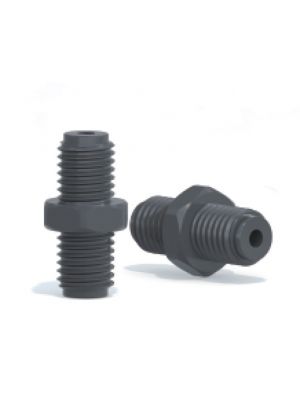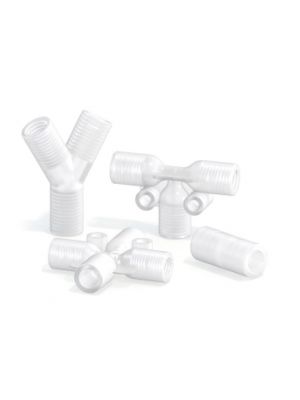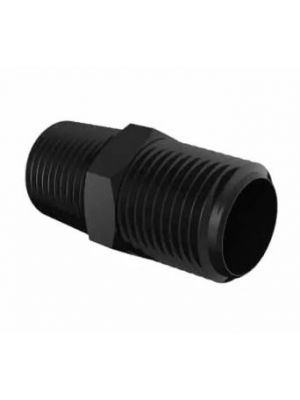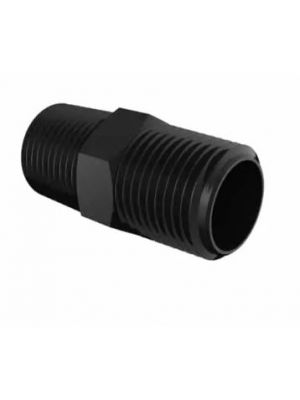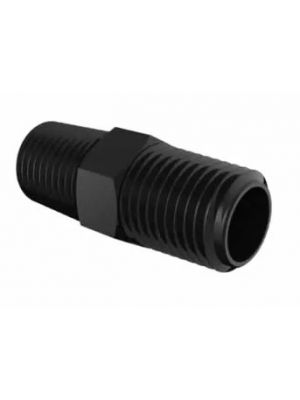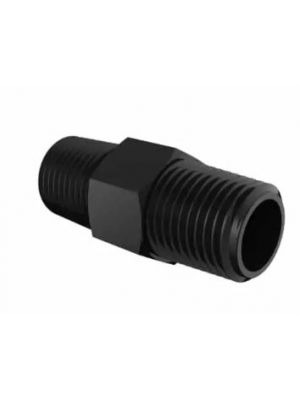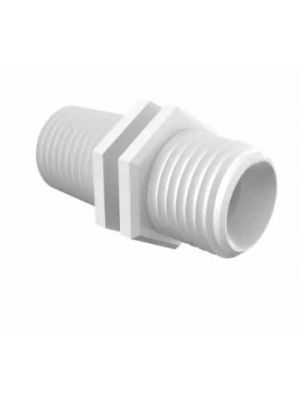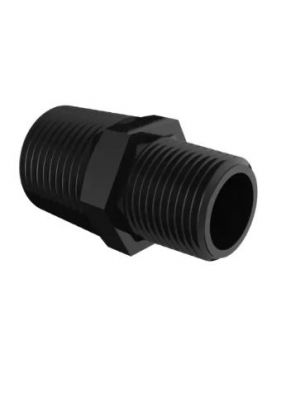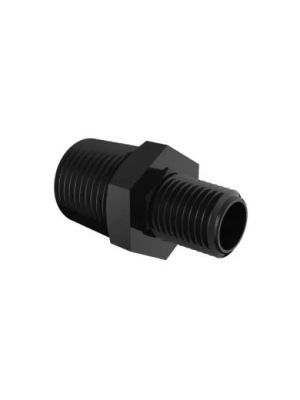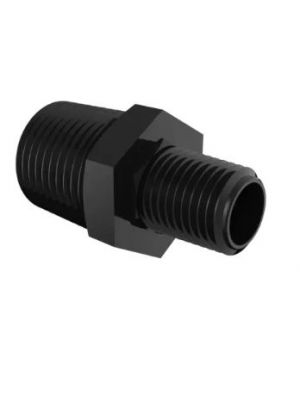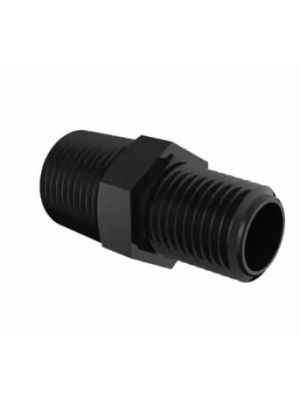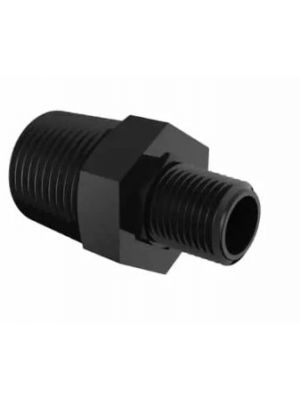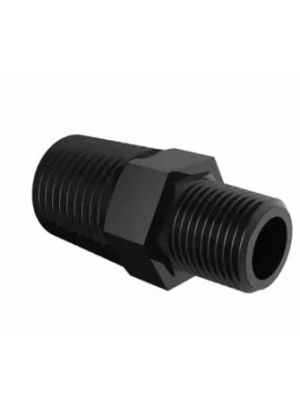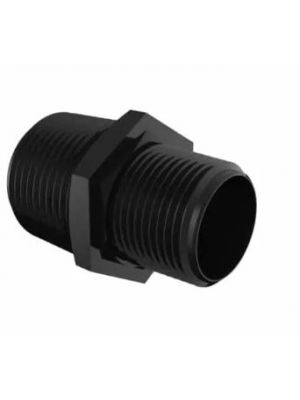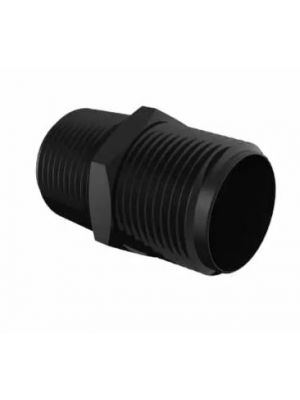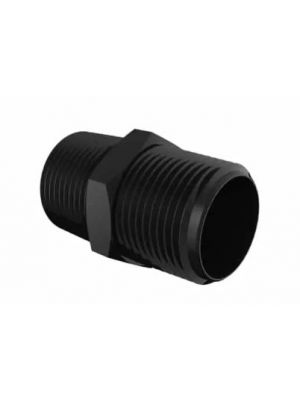
Threaded Connectors
Threaded connections are indispensable in numerous industrial applications to connect components securely and efficiently. Threads made of plastics such as polypropylene, PVDF (polyvinylidene fluoride, often referred to as Kynar) and nylon are common here. These plastic threads offer a number of advantages that make them particularly suitable for certain applications.
-
-
-
-
-
-
- Threaded Fitting Reducer with 1/4-18 NPT Male Thread to 1/4-28 UNF Female Thread, Black Nylon SKU:
1402-2As low as$ 1.44
Polypropylene thread connections are characterized by their high chemical resistance to a large number of chemicals. This makes them ideal for applications in the chemical industry, food processing and water treatment. Polypropylene is also known for its low water absorption, which helps the threaded connection maintain its strength even when in contact with liquids. However, during assembly, care should be taken to ensure that the threads are not overtightened in order to avoid damage.
PVDF threaded connections, often known by the brand name Kynar, are characterized by their exceptional chemical resistance and temperature resistance. PVDF is resistant to a wide range of harsh chemicals, making it a preferred choice in demanding environments such as the semiconductor, chemical and environmental engineering industries. In addition, PVDF can also be used at high temperatures without losing its mechanical properties.
Nylon threaded connections are popular in many applications due to their good balance of strength and flexibility. Nylon is known for its impact strength, abrasion resistance and ease of processing. Nylon threads are well suited for automotive and general industrial applications.

